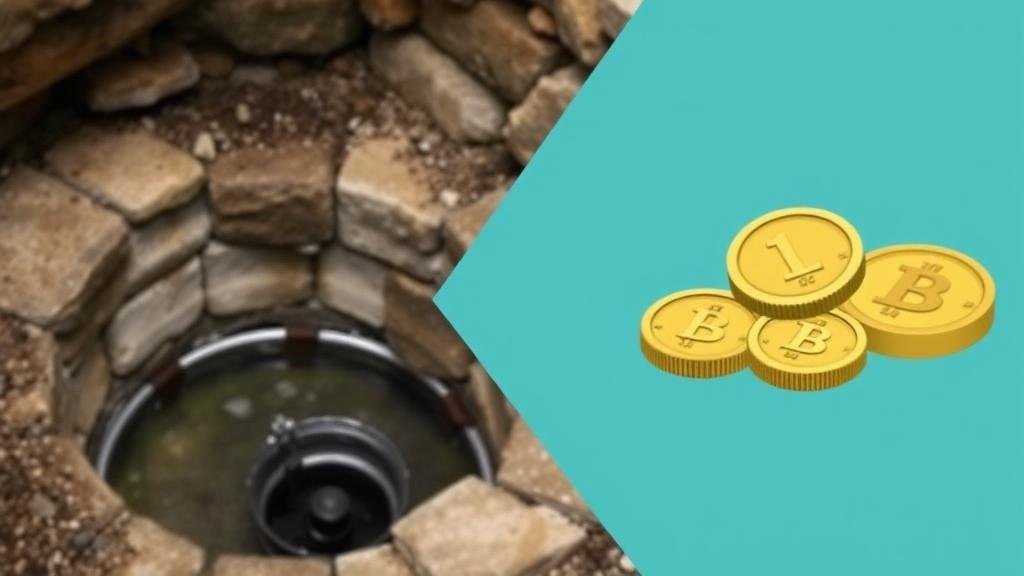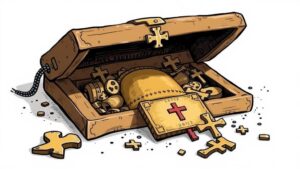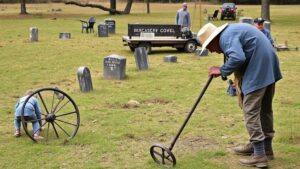Tips for Locating Coins in Old Water Wells and Cellars
Tips for Locating Coins in Old Water Wells and Cellars
Locating coins in old water wells and cellars can be an intriguing yet challenging endeavor. Many collectors and historians often seek coins that might hold significant numismatic value or tell a story about the localitys past. With the right techniques and precautions, treasure hunting in these often forgotten places can yield rich rewards. This article provides a comprehensive guide on effectively searching for coins in these unique environments.
Understanding the Historical Context
Before beginning your search, it is essential to understand the historical significance of the site. Many old wells and cellars were utilized for decades or even centuries for various purposes, from storage to everyday domestic needs. This context can provide insights into what types of coins may be present.
- Research Local History: Investigating local archives or libraries can reveal information about how the establishment used its well or cellar, what era it was most active, and any notable events associated with it.
- Examine Old Maps: Using historical maps can help you determine the placement of old structures and their possible relationship with wells and cellars.
For example, in a recent exploration in a 19th-century farmhouse in New England, researchers found several coins dating back to the Civil War era after identifying that the site served as a temporary refuge for soldiers.
Equipment Selection and Preparation
Having the right tools is vital for a successful search. Modern technology has improved the efficiency of finding coins in wells and cellars.
- Metal Detectors: High-quality metal detectors designed for submersion can be critical for searching submerged items in wells.
- Hand Tools: Trowels and small shovels come in handy for excavating loose dirt or silt.
- Safety Gear: Gloves, headlamps, and protective gear are essential, especially when working in dark or confined spaces.
Using a metal detector with discrimination settings allows you to focus on coins rather than other metallic debris. For example, a seasoned detectorist often finds that a waterproof detector will perform remarkably well when searching through the debris at the bottom of an old well.
Searching Techniques
Adopting certain searching techniques can dramatically enhance your chances of success. Employing a systematic approach is crucial when sifting through potentially hazardous and cluttered areas like wells and cellars.
- Divide and Conquer: Break the area into manageable sections and focus on one section at a time. This method ensures thorough examination.
- Use a Probe: A probing tool can help you feel for objects without disturbing the surrounding area unduly.
- Maintain Cleanliness: Keep the workspace tidy. A cluttered search area can easily lead to missing valuable items.
For example, one treasure hunter had success searching an old family well by dividing it into quadrants and methodically recording the finds to map out patterns of treasure locations.
Analyzing Finds and Identifying Coins
Upon locating potential coins, it is imperative to analyze them properly. Identifying the coins and understanding their historical value is essential for collectors and historians alike.
- Research Coin Types: Familiarize yourself with common coins from the era of the wells operation. Websites like Numismatica can provide valuable insights.
- Condition Assessment: Assessing the condition of the coin is crucial for determining its value. Factors such as wear, corrosion, and overall state are considered in professional appraisals.
A case study involving a collector who found a rare 1916 Mercury dime at a state site illustrates this point. After proper identification and appraisals, the collector auctioned the dime for over $1,200, demonstrating how valuable these finds can be.
Legal and Ethical Considerations
Lastly, it is essential to remain aware of the legal and ethical considerations surrounding coin hunting in old wells and cellars.
- Seeking Permission: Always obtain permission from property owners before excavating on their land.
- Understand Local Laws: Many regions have specific laws about treasure hunting and archaeological digging. Familiarize yourself with them to avoid legal repercussions.
Also, ethically, treasure hunters should report any historically significant finds to local historical societies, allowing for proper documentation and preservation.
Conclusion
Finding coins in old water wells and cellars can be a rewarding endeavor, both financially and personally. Understanding the historical context, preparing adequately, employing systematic searching techniques, identifying finds accurately, and remaining mindful of legal requirements are all critical components of this unique form of treasure hunting.
By following these tips and ensuring responsible practices, treasure hunters can uncover invaluable relics of the past, contributing to the rich tapestry of local history and numismatics.



